For years, Israel maintained close political, economic, and security relations with the Shah of Iran. Newly-declassified documents reveal that Israeli leaders were well aware of his murderous suppression of political opponents.
By Eitay Mack
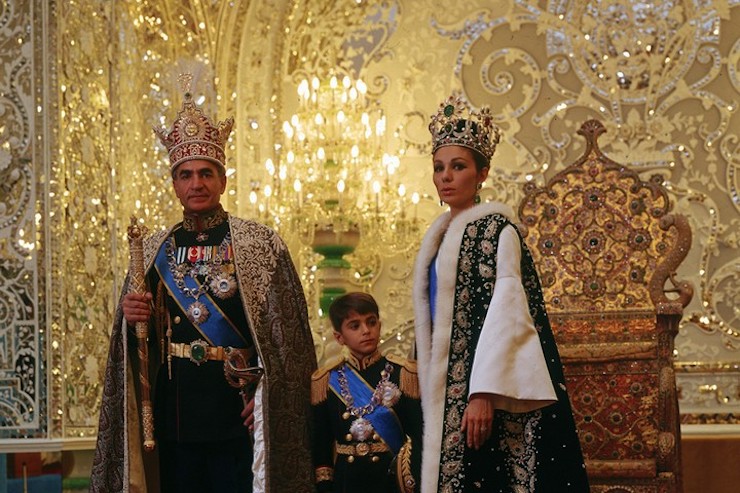
This year marks the 40th anniversary of the Islamic Revolution in Iran, during which the Ayatollahs took control of the country and brought down the Shah’s absolutist monarchy. The Iranian masses, who were undergoing various ideological changes at the time, overthrew the Shah’s corrupt and oppressive regime.
Much has been written over the years about Israel’s ties with Mohammad Reza Shah and his dictatorship. When it was convenient for the IDF censor and political and security officials in Israel, information — even secret documents from that period — was revealed to the general public.
Recently, files from the Foreign Ministry regarding relations with Iran have been declassified and can now be found in Israel’s State Archives. These include more than 10,000 pages from 1953 until 1979, which were heavily censored when compared to similar files in cases of other countries.
The documents expose Israel’s extensive and exceptional relations with a foreign country, not only because these political and security-based relations were with with a Muslim country, but because the relationship with the Shah’s dictatorship was strategic and central to the State of Israel from a security, economic and political point of view. At the time, Israel’s relations with many other countries were limited mainly to weapons sales in exchange for votes in international forums.
Thus, for example, Israel purchased a significant portion — and in some years all — of its oil from the Shah’s regime, while Iran used Israel as a middleman to sell its oil to third countries. The alliance over oil required that Israel and the Shah ensure the safety of shipping routes. This strengthened their partnership in the struggle against Egypt’s Gamal Abdel Nasser’s repeated attempts to promote ideological and military alliances throughout the Middle East that were hostile to Iran and Israel, particularly in the Gulf states and the Arabian Peninsula.
Private and state-owned Israeli companies, ranging from textiles, agriculture, electrical appliances, water, fertilizers, construction, aviation, shipping, gas, tires and even dentures, had been operating extensively in Iran. In some years, Iran was one of the main destinations for Israeli exports. Meanwhile, Israeli academia also enjoyed relatively extensive cooperation with academics in Iran.
The Shah never officially recognized Israel
Iran de facto recognized the State of Israel in March 1950, but in light of internal pressure by those who opposed Israel and the Shah’s pro-Western and pro-American policies — as well as external pressure by Arab states — Iran avoided officially recognizing Israel.
The Shah did have “secret” representation in Tel Aviv beginning in 1961, and Israel had permanent representation in Tehran, which at one point became an embassy that included military attachés. Due to the sensitive nature of the agreement, Israeli representatives in Iran generally refrained from conducting relations with the Shah regime through bureaucrats in the Foreign Ministry and other government ministries. Instead, it carried out its business through a narrow circle of Shah loyalists and politicians, as well as the top echelons of Iran’s defense establishment. Sometimes those relations were conducted directly with the Shah himself and his Royal Court minister.
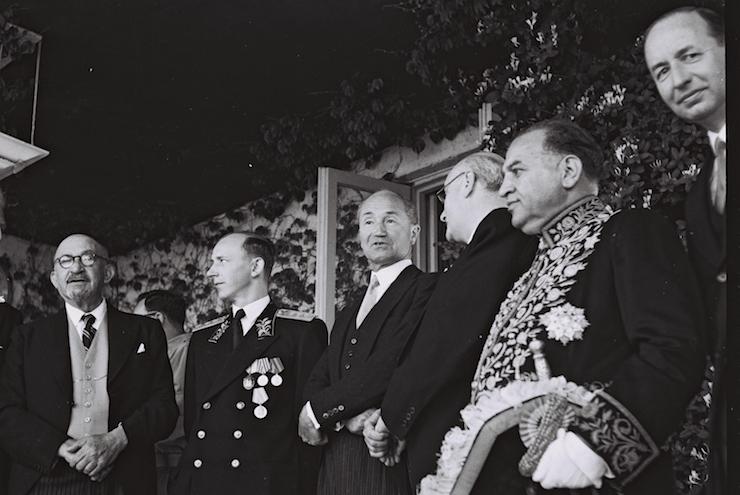
Over the years, Israel attempted to hide its involvement in the security apparatuses and the suppression meted out by the Shah, yet the Iranian public was well aware of Israel’s aid to the regime. In particular was Israel’s close ties with the Shah’s security service, SAVAK, which was responsible for the political persecution, torture and murder of the monarch’s political opponents.
Given the breadth of relations between the two countries, I will focus on documents relating to Israeli assistance to the security apparatuses and the suppression by the Shah’s dictatorship, which would eventually lead to his downfall. These documents attest to the depth of Israeli involvement in the regime, Israel’s strategic importance to this relationship, and the fear of the consequences of the Shah’s fall — a concern that became palpable in the years before the end of his rule.
Stability through oppression
Israeli awareness of the Shah’s oppressive policies is evident from a telegram sent on April 22, 1955 by the Israeli embassy in London. The telegram describes an Iranian diplomat who tells his Israeli interlocutor that the Iranian government is banning communism everywhere, and that the Americans are satisfied with these actions.
Eight years later, on September 9, 1963, Director of the Middle East Department at Israel’s Foreign Ministry Nathaniel Lorch wrote that the traditional religious processions that took place that month had turned into mass demonstrations against the Shah’s regime, and that the government “was surprised by the use of religious demonstrations for political protest. The riots spread to a number of towns. The government used great force to suppress the riots and officially announced that 86 were killed and 193 were wounded. The last few days passed quietly. The regime controls the situation in both Tehran and its provinces.”
Lorch claimed that “the anti-Israel chants by the demonstrators made up a small part of all the slogans, and in the meantime the anti-Jewish and anti-Israeli tone has completely disappeared.” Lorch further noted that “any attempt to present Israeli-Persian relations as a cause for events should be thwarted.”
According to a January 3, 1964 report prepared by Dr. Zvi Doriel, the head of the Israeli delegation in Tehran: “The internal stability and exclusive reign of the Shah achieved by the suppression of religious and other opponents of the regime in June, as well as by what the regime views as a successful election season, continues without significant disturbance. The process of the disintegration of the National Front [the nationalist coalition that opposed the Shah — E.M.] continues.”

The Shah, according to Israeli reports, also leaned heavily on the ruling Iran Novin Party while fostering a semblance of opposition. According to a November 25, 1964 survey by Israel Haviv of the Middle East Department of the Foreign Ministry, instead of maintaining a one-state system ruled by Iran Novin, the Shah supported the continued existence of the People’s Party as a fictitious opposition party that would imbue parliamentary life in Iran with a more democratic character.
The Iranians can ‘stifle any resistance movement’
In a meeting on December 19, 1964 between Foreign Minister Abba Eban and Iranian Foreign Minister Abbas Aram, the latter praised the relations between Israel and Iran and said that there was no other country with which Iran’s relations were so close. Meanwhile, the Iranians preferred to keep the relationship quiet. Meir Ezri, an Israeli representative in Tehran, reported in a missive sent on May 5, 1965 about a meeting he held with the foreign minister, in which Aram complained about the public nature of Israel’s activities in the country, saying it may harm Iran’s relations with Arab countries.
Ezri replied to the minister, saying that “Israel’s general interest in the Middle East is the existence of a sovereign and prosperous Iran headed by the Shah, who is considered a friend of Israel… We do not believe that the Arabs will ever be friends with Iran despite all Iranian efforts. Our friendship obliges us to bring to Iran’s attention what we know about the Arab efforts aimed at the most vital Iranian interests.”
Israel, as noted, was aware of the murderous suppression of the Iranian opposition. David Turgeman, who was part of the Israeli mission in Iran, reported on January 27, 1966 that the leaders of the communist Tudeh Party had been sentenced to death in absentia, part of a larger trend of putting opposition members on trial. A few months later on July 21, Turgeman reported that the Shah and the top echelons of the government were confident and that “there is no internal danger posed by left-wing oppositionists, and that security forces can stifle any resistance or underground movement.”
Turgeman had no doubt about the nature of the regime. In a March 8, 1967 survey he wrote, in conjunction with the Shah’s family protection reforms, that “we must admit that the new law is a classic example of the benefits of a regime of enlightened absolutism.”
The IDF attaché is the ‘hero of the day’
This did not prevent Israel from seeing Iran as a matter of substance. In a survey prepared on February 23, 1966, Director of the Foreign Ministry’s Middle East Department Mordechai Gazit wrote that “in some respects it was said that Iran-Israel relations are a kind of unwritten secret alliance that gives Israel a range of advantages in the fields of the economy, security, the Middle East and anti-Nasserism.”
Gazit added that Israel is engaged in “the renovation of Iranian Air Force planes and civil aviation aircrafts with full and large compensation… Israeli experts were employed in the anti-Nasser Persian propaganda… very close intelligence cooperation through taking full advantage of the Iranian territory… Close cooperation between the IDF and the Iranian army… The attachés are in daily contact with the Iranian general staff, and this is, in fact, without unnecessary modesty… An Iranian purchase from IMI Systems, in addition to the “Uzi” deals and the other acquisitions are in advanced stages of discussion.”

The published documents do not detail the content of the partnership between Israel and the notoriously despised SAVAK. However, the documents do include a breakdown of military cooperation. For example, according to a telegram from January 4, 1967, the Iranian prime minister asked the Israeli military attaché in Tehran, Colonel Ya’akov Nimrodi, to coordinate the training of the head of his bodyguards. In a conversation held a month later with Meir Ezri, the Israeli representative in Tehran, the prime minister told Ezri that “he instructed the commander of the gendarmerie to purchase an Uzi submachine gun and approved the necessary budget for doing so in accordance with the request of the IDF attaché in Tehran.”
Two months later, on April 13, then-Chief of Staff Yitzhak Rabin spoke with the Shah, who was interested in Israeli planes and tanks, and was “knowledgeable about what was going on and particularly on the security/military level” when it came to Israeli-Iranian cooperation.
A review by Israeli Ambassador in Tehran, Dr. Zvi Dorel, on August 29, 1967, read as follows: “We have established a close, friendly, and practical partnership between the IDF and the security services and their Iranian counterparts, with joint execution of programs and missions of national importance, with continuous mutual visits by the heads of the armed forces and their senior officials.”
“Various security problems vital to Israel have been solved in close cooperation with the Iranians,” Dorel continued. “The military attaché is recognized by the general staff and the Iranian Foreign Ministry, it maintains extensive relations with the Iranian army and deals with an impressive list of issues of national importance and enjoys special fondness by the Iranian military circles… They conducted advanced negotiations regarding the purchase of Israeli-made products and BEDEC programs to the tune of millions of dollars… Israeli chiefs of staff and the head of the security services have met with the Shah several times… the Iranian army views the IDF and the security services as allies and those involved in making contact and professional issues… Colonel Nimrodi, an IDF attaché, was a hero today among the army circles.”
The Shah in Israeli gossip columns
According to a telegram dated December 27, 1967 (it is unclear who sent it): “Prominent Israeli presence was accepted by the Iranian public as a fact that cannot be annulled… Iran views the ‘revolutionary’ Arab regimes not only as the source of extreme Arab nationalism but also as a threat to the royal regime. This is convenient and encouraging not only in the intimate relations between our security services and those of Iran, but also in the diplomatic realm in Western capitals, particularly in the United States and the United Kingdom, and even in coordination and cooperation in the Middle East (vis-à-vis the Kurds and Yemen).”
Nevertheless, despite the close relations, the Shah’s regime did not particularly like these relations — or criticism of the regime — to be publicized. The Shah’s inner circle repeatedly objected to Israeli media reports about both the relationship between the two countries as well the hedonism of the royal family. For example, in August 1967 the Iranian Foreign Ministry protested a gossip article published in LaIsha, an Israeli lifestyle magazine for women, about the Shah’s family, even though the Israeli representative in Tehran explained that it was “a magazine of no importance that is mainly read by teenage girls.”
According to a telegram sent by Y. Margolin on September 13, 1967, the Foreign Ministry examined the possibility of appealing to the Attorney General to initiate criminal proceedings against LaIsha and to require any gossip published about the Shah’s family to first be approved by the IDF censor.
According to a telegram sent in August 1972 by Ambassador Ezri to the director general of the Ministry of Defense, the negotiations over the purchase of Israeli tanker aircrafts by the Shah’s dictatorship were progressing. A report prepared by the Foreign Ministry on Israel’s defense exports to the dictatorship on October 29 of that year reveals that between 1968 and 1972, IMI Systems sold $20.9 million worth of equipment to Iran; Israel Aerospace Industries sold $1.3 million; Soltam sold $16.9 million in mortars; Motorola sold $12 million; Tadiran sold $11.3 million and set up a radio equipment factory in Iran; and Israel’s Defense Ministry sold $700,000 worth of equipment.
A united front against communism
A letter dated June 28, 1973 by the Finance Ministry’s deputy supervisor of foreign exchange to the deputy director general of the International Defense Cooperation Directorate of the Israel Ministry of Defense stated that, “Recently, Israeli officials have increased their activity in Iran, including: production units of the IDF and our Ministry of Defense, the Air Industry, Tadiran, Motorola, and others who are trying to sell their services and products to the Iranian army, the Iranian Ministry of Defense and similar government agencies.”
“The spectrum of activity is broad, ranging from the supply of military products and electronics manufactured by factories in Israel, to the export of systems for creating and assembling them on the spot, training, surveys, construction, assembling and maintenance of facilities on the ground through contractors. From what has been brought to our attention, we see that the activities of various Israeli bodies are similar and perhaps even overlapping,” the deputy supervisor wrote.
Iranian police received training in operating communications equipment at Motorola in Israel, but according to a telegram sent on July 2, 1975 by A. Levin from the Israeli mission in Tehran to the Foreign Ministry’s Agency for International Development Cooperation, the Iranians requested to “receive full training in Israeli police facilities.” Levin recommended that the request be accepted and eventually informed the Foreign Ministry that “Israel Police agrees to accept under its auspices and responsibility the course for Iranian liaison officers,” and that the theoretical part of the course will include “tours to police facilities.”
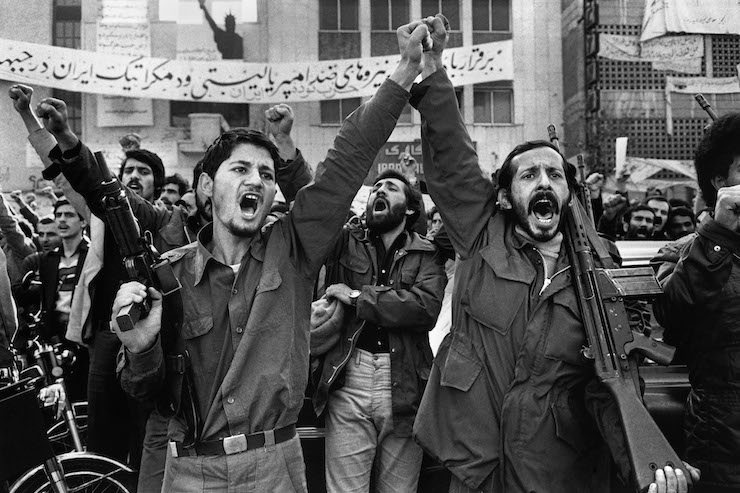
These relations existed at the highest level. Prime Minister Golda Meir met with the Shah in 1972, and in a May 19 report she said that the Shah “thinks that the relations and cooperation between countries that stand against communism should be strengthened: Persia, Israel, Turkey and Ethiopia.” Two years later, when Meir resigned and Yitzhak Rabin took over, the new Israeli prime minister also visited Iran. According to a telegram from December 8, 1974, Rabin met with the head of the Iranian security services.
The beginning of the end
It was during those years that Israel began to believe that the regime was unstable. In a report prepared by the Foreign Ministry on September 11, 1972, shortly after Meir’s visit to Tehran, it was noted that “social unrest is manifest among students and intellectuals, and the stability of the regime is maintained through policing.” Four years later, in June 1976, Israel already understood that the Shah was in trouble.
A telegram sent at the time by Israeli Ambassador Uri Lubrani stated that the Shah’s liberalization policy, which included the assumption of powers from SAVAK, led to “the opportunistic elements that until recently had been underground or dormant to take advantage of this and begin expressing their opposition to the regime.” This forced the Shah to return some of SAVAK’s authority in an effort to control the situation.
Ambassador Lubrani added that “the feeling of many in Iran today is that the status of the Shah has begun to be quickly undermined, a process that cannot be reversed and will eventually lead to his defeat and a drastic change in the form of government in Iran. It is very difficult to give a time estimate and my personal assessment, which is not based on any objective data, is that this will take place more or less in the next five years. There is no answer to the question of who or what will replace the current regime. It is reasonable to assume that the monarchy will end and that, at least in the first stage, the military officers will take its place. The big question is who will lead them and what direction he will take.”
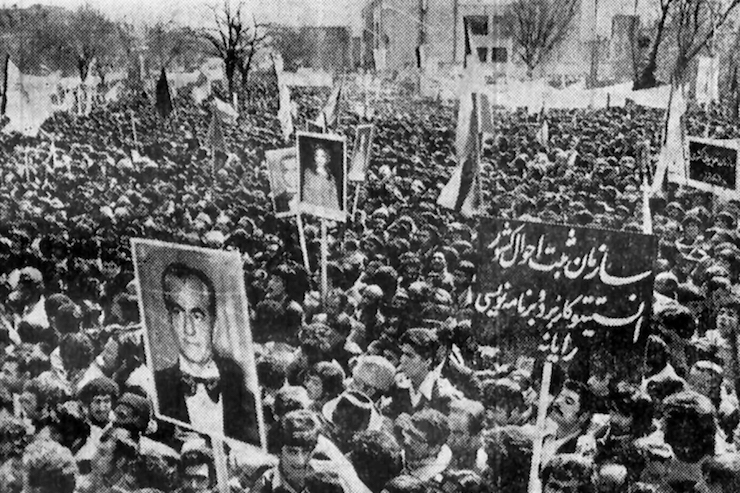
As for the consequences for the State of Israel, Ambassador Lubrani wrote that “the implications of a new situation for Israel-Iran relations should the Shah’s rule be undermined are grave, and the current regime of the Shah will be seen as the most positive one for Israel in Iran. Any change in this government will, to the best of our assessment, be to the detriment of our relations with this country.”
Lubrani also that Israel had extensive activities in Iran at the time, including “relationships surrounding the oil supply from Iran (both to supply itself and the Eilat-Ashkelon pipeline), and oil sales such as security-related projects,” and that “the security arrangements that were recently signed create an Israeli commitment to Iran vis-a-vis sensitive areas, as well as Iranian financial commitments that are significant for our national economy.”
As time went on, Israel became increasingly concerned about the fate of the regime. Two years later, on August 14, 1978, Lubrani sent a telegram to the Foreign Ministry in Jerusalem in which he painted a bleak picture of the Shah’s future. The ambassador met with Deputy Police Chief Ja’afri, who told Lubrani that “in the short term he does not anticipate difficulties in maintaining law and order and believes that the military regime is capable of dealing with any attempt at rebellion. On the other hand, he believes that this situation cannot continue indefinitely and that if the government does not take far-reaching measure to change the system of governance and its priorities, the existing regime will collapse.”
Ja’afri believed that the Shah was unaware of his true situation. He also criticized the head of SAVAK for “not introducing changes into the system that the people themselves have hated for years.” Ja’afri claimed that the regime made a mistake when it used the army and “caused many casualties,” while noting “the special relations we had with him and promised to help if necessary.”
The last hope
A month and a half later, on September 28, Lubrani reported to the Foreign Ministry that he had met with the Shah in light of the huge demonstrations that sought to oust his regime, during which Shah reiterated his claims that the communists were responsible for the demonstrations. When the Shah asked Lubrani about the identity of his interlocutor, Lubrani answered that “on political matters I have always acted, if not in tandem the head of SAVAK, then through the Royal Court minister or Tufanian (Deputy Minister of Defense – E.M.).”
Lubrani summarized the meeting: “I have a difficult impression of the man. He is not the man we were familiar with, he was distant and sometimes stares. There is no doubt that the man has gone through a nightmare from which he has yet to fully recover. He is full of terror and uncertain of the future. The most worrisome aspect is the sense that he seems to have made peace with his fate, without having found any strong desire to take matters into his own hands and change it. I will add that it is possible that I found the Shah in a temporary moment of gloom.”

Israel did not want to lose its stronghold in Iran under any circumstance. If the Shah was to be deposed, Israel hoped that a military regime would take his place. In a telegram from December 30, 1978, Director of the Middle East Department at the Ministry of Foreign Affairs Yael Vered writes that the best option for the State of Israel is “extreme toughness by the army and the establishment of a military regime and a real military government. Whether initiated by the army in the form of a military coup or with the Shah through tacit consent on his part.”
On January 4, 1979, in a last-ditch attempt to bring calm to the streets of the country, the Shah appointed Shapour Bakhtiar as prime minister. Israel, however, had no illusions about his ability to govern. Four days later, Vered sent a telegram to Israeli missions around the world saying that Bakhtiar’s government had no public support and was in danger of collapsing.
Vered wrote that the Shah and Bakhtiar had reached an understanding about the Shah going on “holiday leave,” but “the length of time and who will decide on his return remains a question and may lead to crises in the future. The Shah continues to symbolize the unity of Iran, and the loyalty of the army to him, even today and despite the number of cracks, is undoubted.”
Vered estimated that if Khomeini and his supporters took power, relations with Israel would come to an end. Yet she maintained hope that the army would take over and that Iran would see “another form of government like the current one or a more convenient army, and it is likely that the presence (of Israel – E.M.) will initially continue under a lower profile.” Vered’s hopes did not come to fruition, and on January 16 the Shah fled Iran.
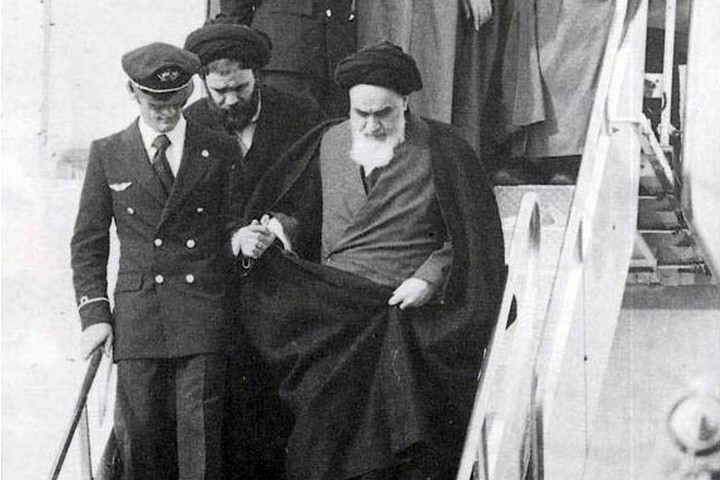
On February 11, about a week after Khomeini returned from exile to Iran, the Israeli government decided to evacuate its remaining representatives in Tehran, especially Ambassador Yossef Harmelin, while at the same time examining the possibility of leaving an Israeli representative so as to not completely sever ties with the new regime. “The foreign minister instructed the director-general, after the Mossad announced the evacuation of our people, to examine the possibility of leaving a person in a diplomatic appointment so as not to cut the wire,” the cable said. “There will be no official announcement of leaving. If Harmelin leaves – he will be in danger should he be imprisoned, due to the fact that he was the former head of the Shin Bet.”
‘The masses can bring down a regime with tanks’
Yet Israel still held out hope for the new regime. Three days later, Foreign Minister Moshe Dayan met with the Japanese ambassador to Israel. A report sent to the Israeli embassy in Tokyo shows Dayan told the diplomat that “the current stage (in Iran – E.M.) is not final and is a transition into a new period. There is concern that the influence of extreme leftists will grow, and that in addition to the religious sea change, xenophobia will also spread.”
Yet, according to Dayan, Iran will still need foreigners to operate its sophisticated weaponry, especially after the Americans had left. Minister Dayan further expressed his concern for the fate of the Jewish community in Iran, arguing that “one must worry about the influence of the events in Iran on other countries in the area, Egypt, Saudi Arabia, Jordan, Sudan, and Morocco, who also do not respect civil rights.”
On the same day, Dayan spoke with U.S. Secretary of Defense Harold Brown, who according to the protocol told the Israeli minister that “the United States does not feel guilt about what happened to the Shah, since the Shah failed to develop a managerial class below him that would shoulder some of the responsibility, and if everything in his country was in his hands, then his mistakes were his alone. There was also the problem of corruption. The revolution in Iran has reached the masses. There is a strong sense of nationalism. One can hope that the Iranians will understand the main factors in their national interest and act accordingly.”
But beyond concerns about the loss of an Israeli “outpost” in Iran, Israel had other no less serious concerns: the fear that the masses in the Middle East would imitate the Iranians and overthrow their own regimes. According to the minutes of a meeting of deputy directors-general held on the same day Dayan spoke with Brown, Pinchas Eliav, director of political research at the Foreign Ministry, said that the serious issue is that “the social-economic-public character of the upheaval proved that the street and the masses could bring down a regime with tanks, the most modern weaponry, and an air force.”
“All these forces stood before a street that is nevertheless a street (perhaps Khomeini had some agents and some communist intervention), incitement, and ideology, and the masses succeeded in overthrowing the regime. This is, in my opinion, a harbinger of danger to all the regimes in the region, including the radical ones.”
Neither Israel nor the United States have never taken responsibility for their continued support of the dictatorship and their support for the Shah in crushing the left and the progressive elements in Iran. Their conduct was instrumental in the establishment of the dictatorship of the Ayatollahs.
Eitay Mack is an Israeli human rights lawyer working to stop Israeli military aid to regimes that commit war crimes and crimes against humanity. This article was first published in Hebrew on Local Call. Read it here.
